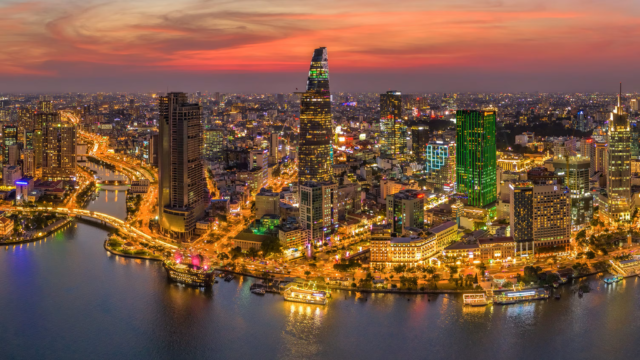Perhaps no country exemplifies the uncertainties of the second Trump presidency as much as Vietnam. During Trump’s first term, Vietnam was one of the biggest beneficiaries of the trade war between Beijing and Washington. Investments that might otherwise have gone to China were instead diverted to Vietnam, which boasts a rapidly growing economy, a relatively large and low-cost labour force and a relatively conducive environment for foreign investment.

Vietnam’s recovery from the COVID-19 pandemic has not been without hiccups. Consumer spending is still below pre-crisis levels and private investment remains sluggish. Vietnam’s population is also ageing, creating demographic headwinds. Though the domestic macroeconomic environment remains relatively sunny, storm clouds loom on the horizon of the international economy — particularly the expected intensification of US protectionism under President-elect Trump, who has promised universal tariffs on all imports.
The challenges Vietnam faces now are the same that countries further down the developmental path, like Thailand and Malaysia, have faced before: how can the economy smoothly transition from a growth model centred on low-cost manufactured exports to one that is more heavily reliant on human capital development and innovation. This is not an easy transition to make, and some countries have faltered at the challenge. A common feature of Asian economies that have made the leap to high-income status, though, is that they need to deepen their trust in markets, both international and domestic.
On the international front, much will depend on Donald Trump’s mercurial attitude towards American trading partners. On the one hand, he has signalled a much more aggressive stance in his second term. Tariffs — or the threat of tariffs — will, it seems, become a regular tool of statecraft. The moderate free-trade wing of the Republican Party is much weaker now than it was in 2016, and is likely to be able to do little to reign in Trump’s worst instincts. Countries like Vietnam will likely find it more difficult this time to navigate the trade wars. The United States this year refused to remove Vietnam’s ‘non-market economy’ status, ensuring that it will continue to suffer discriminatory market access, and this is unlikely to change under Trump.
Vietnam’s economy in President Trump’s cross-hairs | East Asia Forum

